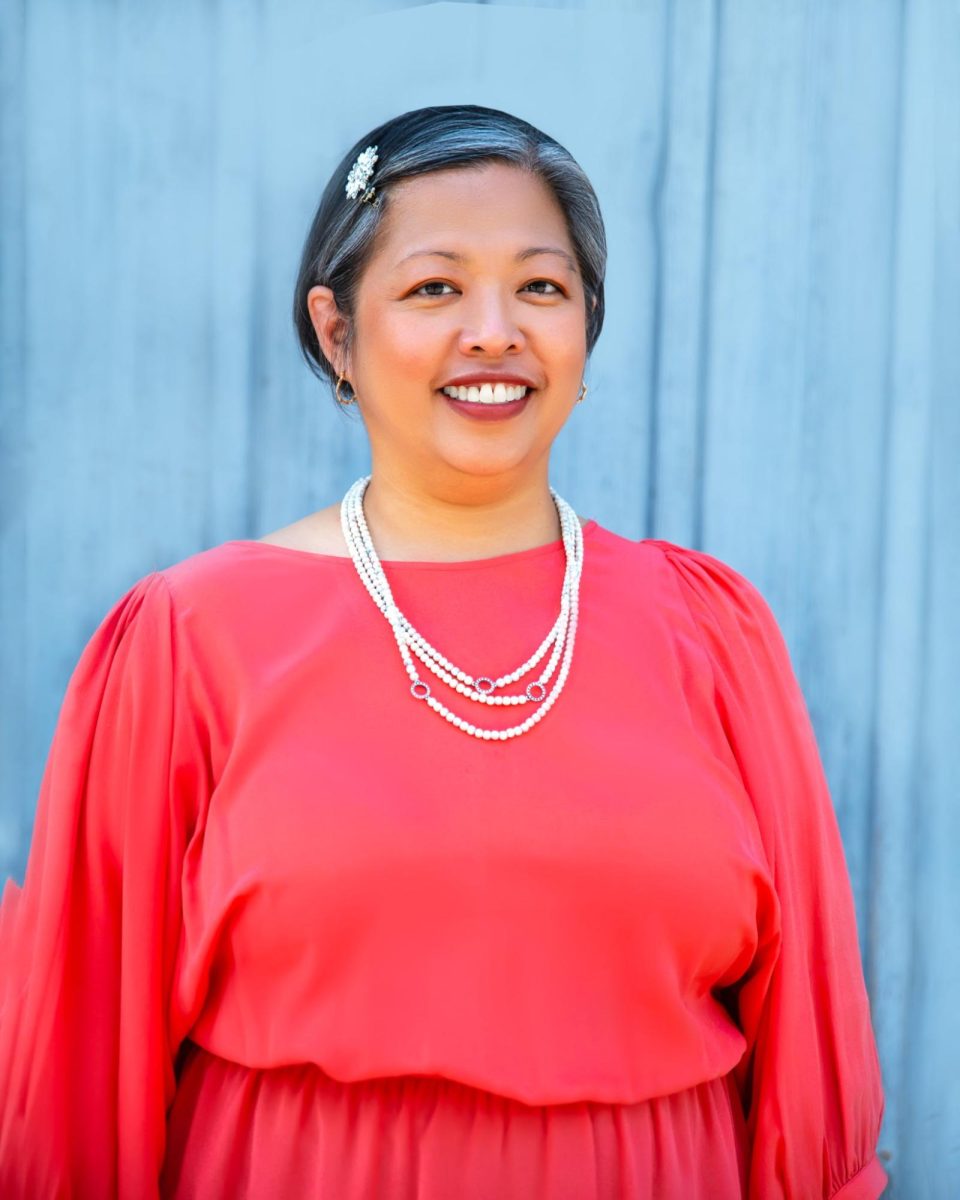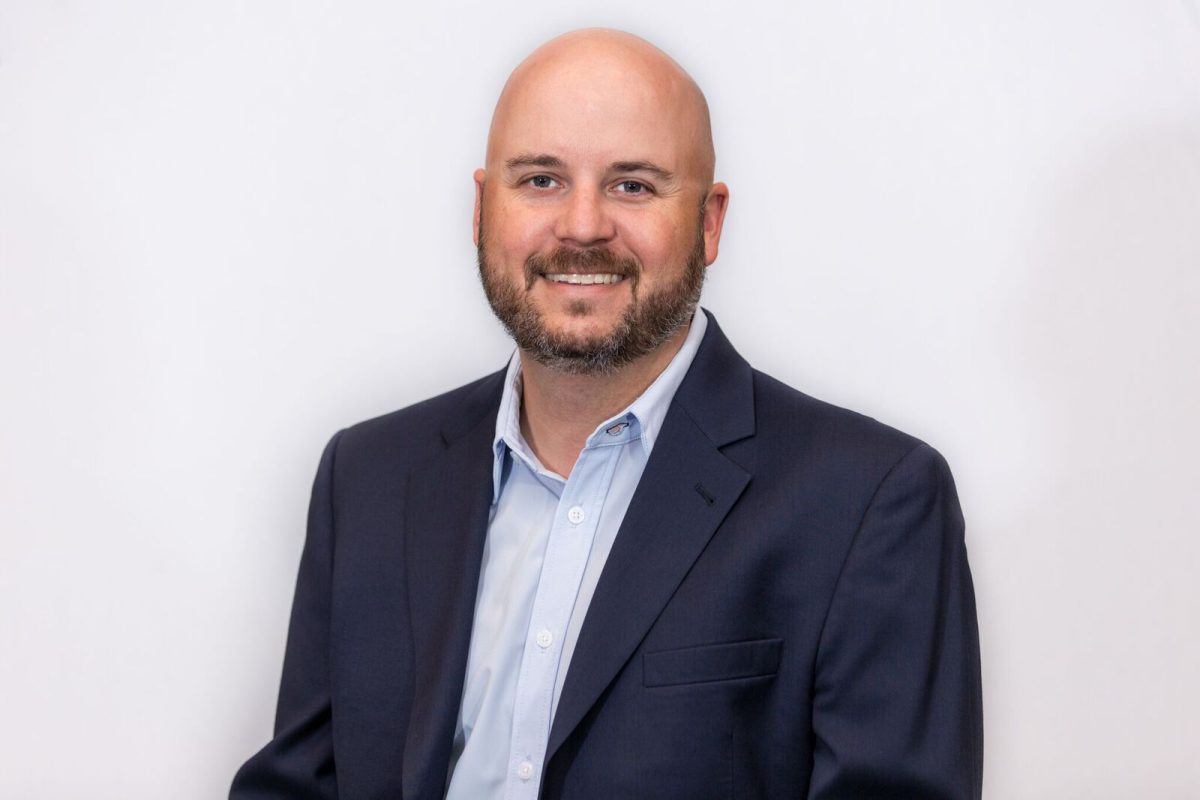What motivated you to run for District 5?
I have experience in schools, and you should have people involved in making decisions who have a background in and knowledge of the situation. I’ve been a teacher, I’ve been an administrator, and I used to be a professor at the University of Houston, so I feel like I have a lot of experience working with students. The other big reason is that my daughter is in school here, so I have a vested interest in her education, just like lots of families do.
What has been your biggest struggle with running for District 5?
One of my biggest struggles is that people think there’s no elected board. I’ve had to educate people that there’s eventually going to be an elected board coming back and so you have a voice. But right now, in this position, if I were to be elected, I would not be making any decisions or serving on the board. I am a voice, and I’m an elected official, but I would have no voting power. And there are a lot of people that think, because of the takeover and the appointed board, that there are no elections. So, I’m having to educate people that there are elections, that they can vote and should vote in November. Just like they voted to not support the bond, they need to vote again, because it’s through their voting that they are making a statement about what the community wants to see, and what the community values for education in HISD.
What do you feel are the biggest issues district five is currently facing, and how would you plan to address it?
I think the biggest concern of families in District 5 is stability. The fact is, beloved teachers have left schools where there [used to] rarely be an opening because once [teachers] get to that school, nobody leaves. We saw a huge shift in the number of teachers that left the first year of the takeover. And so you’re getting new people in, maybe some are bright and maybe some are brand new to the education field.
The other thing is trust. If the administrators have changed or the teachers have changed, how do parents know that it’s going to be the same high quality instruction that they’ve been used to, that they’ve seen their older kids experience? My daughter just finished fifth grade, and many kids in her class went to private school. Their older siblings were in public school, but families have slowly started becoming more and more concerned about the direction HISD is taking, and that is a fear for me, because I’m a product of public education. I think public education is the cornerstone of democracy. Everyone should be educated well, and I think we pay our tax dollars to make sure that we’re all lifted up.
Ultimately, families want to make sure their kids are having a good education. And right now, with the lack of libraries and a lot of worksheets, a lot of families are very concerned that that is not what they want for their child. And then there’s an over emphasis on STAAR. Because of that, there’s teaching to the test, where all lessons are just based around STAAR. So, a lot of people are very concerned about the quality of education now that we’re under the takeover, and Mike Miles is in charge. Because teachers have left and principals have left, there’s this sense that they have no voice, like you can complain and nothing changes. No one’s listening.
What would be your main goals and objectives as a trustee?
One of my main goals is to make sure the community knows that I represent them, and will speak for them. The second goal is to rebuild, because too many teachers have left. What we have are people with good intentions but need better training. So we need to start rebuilding there, and having that two-way communication is critical to build the trust that we’ve lost because Mike Miles and the takeover has really made [communities] question whether or not they can trust their children to be educated in HISD.
How do you feel that your professional background will influence you as a candidate and potentially a trustee?
In addition to being a teacher, I’ve done a lot of professional development, so I know what’s best practice out there, and I think that makes a huge difference. I also have a Ph.D. in educational psychology, and I focused on student motivation, because that was one of my questions. How come, according to all of this standardized data, Black and brown kids were performing not as high as white and Asian kids? I taught Black and brown kids, and I knew they were brilliant, so I didn’t understand why. I spent a lot of time really researching why Black and brown students perform worse, was it racial-ethnic identity or self-efficacy? It really came down to their motivation. Was what they were learning interesting and useful and did they feel confident that they could do well?
I was also an administrator. I was an assistant principal focused on special-ed students as well as English language learners. I have a graduate certificate in data science and business analytics, because I wanted to better use data. I think being able to look at data, not be afraid of it and use it to make decisions is also another aspect to being a really good trustee.
I recognize that education is very complex. It’s not like a business or a factory. Every student is different, every community is different, we have different needs. I think one, having empathy, and then two, coming in with this background, will help make me a good trustee.
How do you feel your personal connections to HISD will influence you as a candidate and potentially a trustee?
As a trustee, you represent your area, but every decision you make doesn’t just affect your area, it affects all the students. Because I’ve been living in the Bellaire area for 15 years, I feel like I understand my community. I’ve been the president of Bellaire Young Mothers for the past five years and involved in that organization for the last 10 years, and that has given me an opportunity to meet lots of different families from the area.
Also, my daughter has been attending well-functioning schools and so I feel like I’ve run the gamut of experience. She went to Condit Elementary and everything was great there, versus my experience being a teacher at some really challenging, underserved schools.
I graduated from HISD. I went to Booker T. Washington, a high school for engineering professions. That was very different from the experiences that I had as a middle schooler, so I feel like all the diverse experiences that I’ve had, including my work in education provides a really rich background by which I use my knowledge and experience to make decisions and ask questions.
What experience do you have dealing with the school board, and how do you think that this will help you as a potential trustee?
One of the things that I do is I read the agenda packet, as much of it as possible. I’ve attended almost every board meeting and a handful of budget meetings and workshop meetings. I speak at those, there’s a place for public comment where you can ask questions. I have been going to the board meetings saying “This doesn’t look right. You all need to look into this a little bit more. This data doesn’t seem right,” and to encourage the board to be more critical. I do that because policies change at those board meetings. This past month, the agenda was 600 pages. It’s too much to read. It’s too much to go over. But if we all do a little bit [of the agenda], then we can all come together, compare and talk about it and what the issues are. I think that’s critical. I’ve sent emails to the board managers saying, “You need to look at this data. It doesn’t seem right because of X, Y and Z,” and so that’s the sort of stuff that I will continue to do until I’m on the board officially.
What is one thing you want the community that will elect you to know about you?
I’m going to be somebody who acts. I’m not just going to sit back and watch our community, our schools be dismantled. I will fight for our communities and what it needs. And I have been fighting. Whether people like protests or not, sometimes it’s just an opportunity for people to get together and express their concern, and we’ve tried to communicate. We need people to be aware. We’ve seen this happening more and more on a national scale, where people feel like they’re not being heard, and so they are going to the streets in an organized way. I know some people are not comfortable with that, and I understand, but I also recognize that there’s a need for action and I’m open, always, to helping people feel empowered and most of all heard, and do something about it. I don’t want to sit back and just be like, “Oh, I’m so sorry. That sucks,” and then I go on with my life. I really want people to know that I hear them and I will help them find a solution. And if we need to speak a little louder, then we will.
Where do you receive the majority of your campaign funding from and how do you feel this reflects your values?
I get a lot of my funding from educators. I used to teach at the University of Houston in the teachHouston program. I have a ton of teacher friends, so I think that that represents that I have the confidence of a lot of educators. I think the other part comes from parents that I’ve worked with in the community. All of those were personal donations. I’ve not received anything from any organization at this point or any business.
What do you think is the significance of the role of a trustee?
As a trustee, my responsibility is to communicate. Sometimes there are really big issues that need discussion. That communication piece is a big responsibility, and speaking up for people in our community is another big piece for the trustee. Ultimately, I want to be held accountable if I’m not doing a good enough job. We can have a conversation, I’m always open to feedback. I think that’s important, because, again, the world of education is very complex, and we all come at it from a different angle. As a teacher, I know the inside. As an administrator, I know how to run schools, as a researcher, I understand some of the cognitive stuff that’s going on in students’ heads, and as a parent, my hopes and dreams and goals for my child. It’s all of these pieces that, through conversation, we can come to terms. We can understand each other, agree and sometimes disagree.
A trustee should be a person who you feel like you can go and talk to because they represent you. You should be able to feel comfortable to talk to me because I’m just your neighbor.



